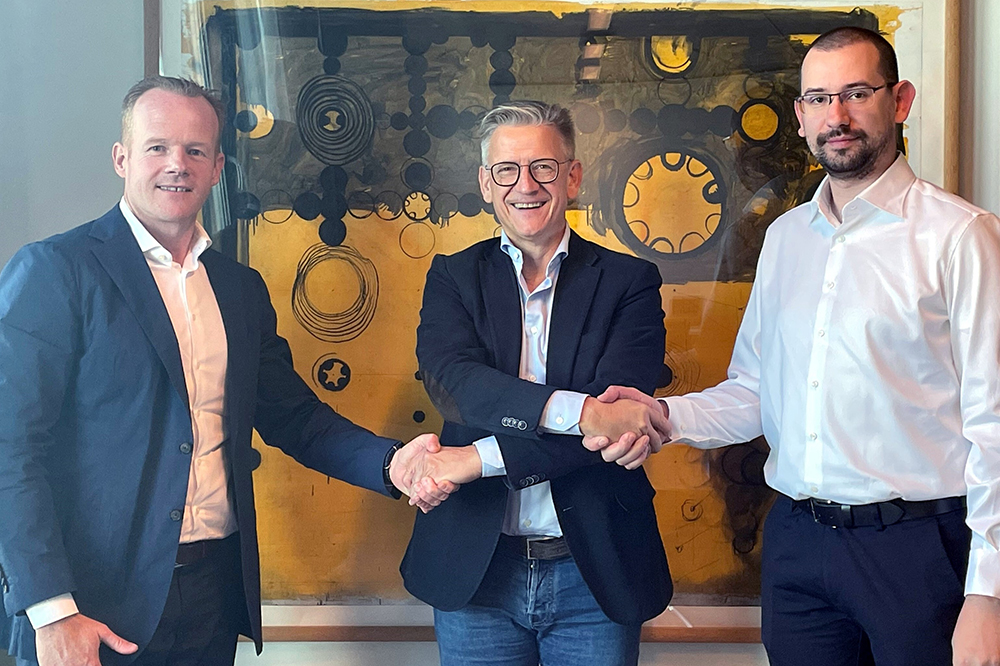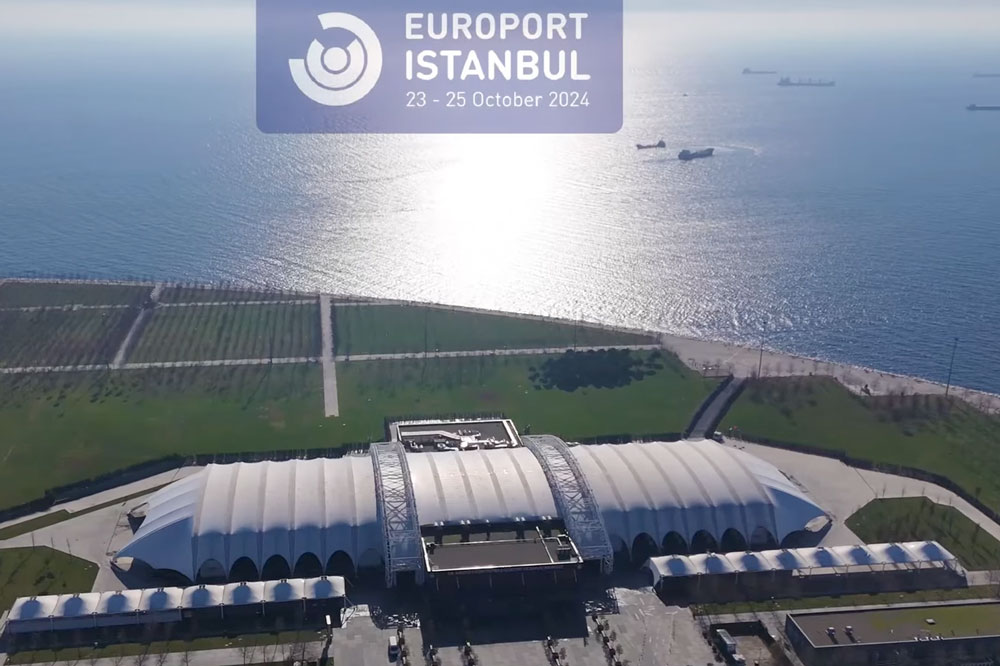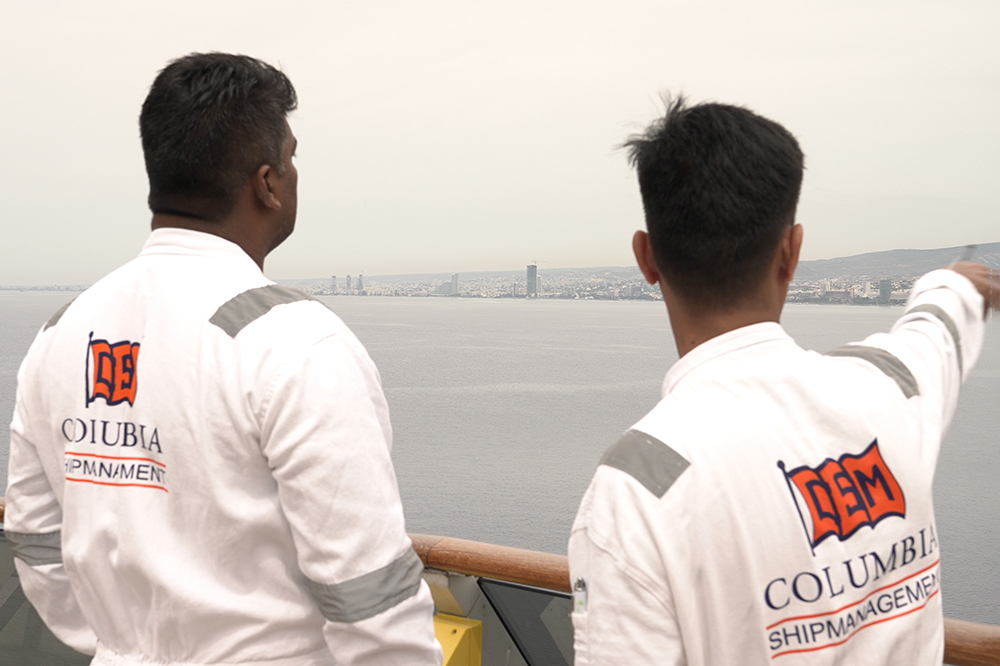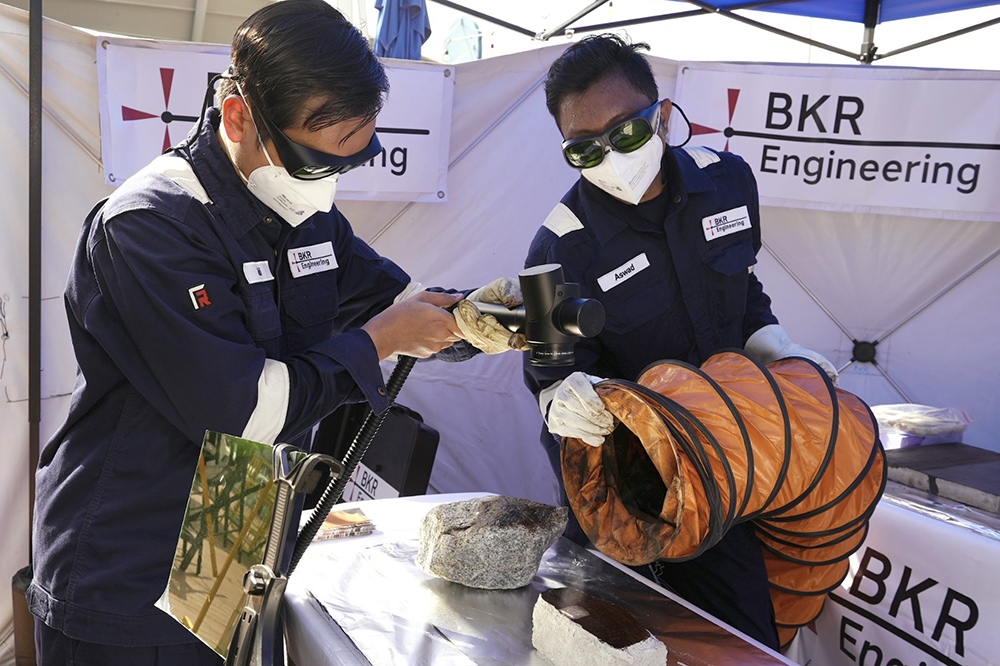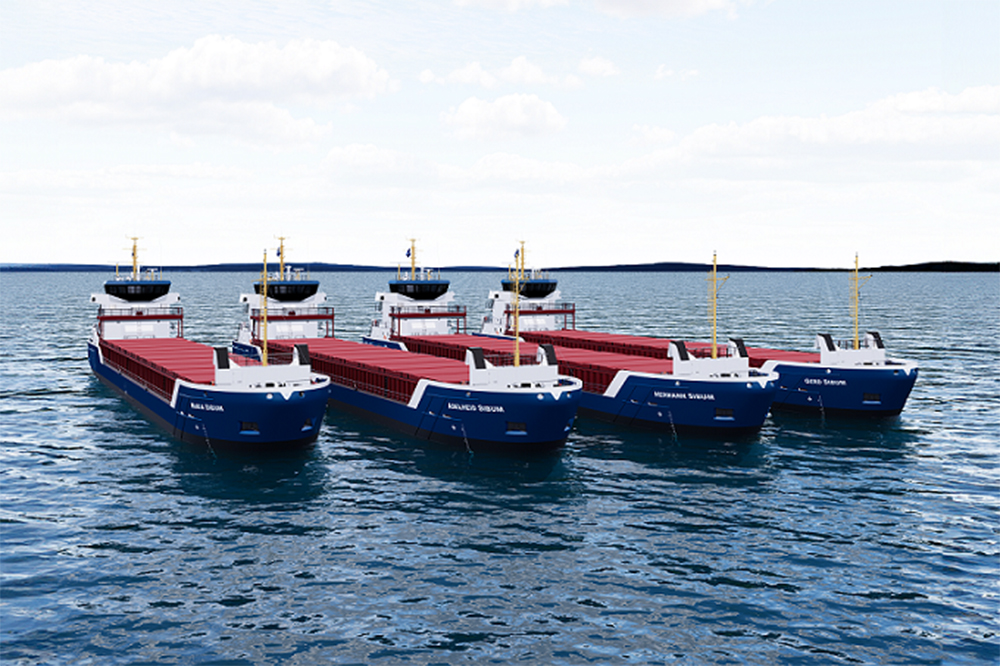Hamburg container terminal operator HHLA has reported a loss for the first quarter of the year despite an increase in throughput. The reasons given are the weak economy and supply chain disruptions.
The “environment characterised by ongoing crises and increasing geopolitical tensions” continued to weigh on global economic development, HHLA said in a balance sheet release.
In addition, the military conflict in the Red Sea at the beginning of the year led to significant ship delays and cancellations in European ports, which also affected hinterland transportation.
Against this backdrop, consolidated sales fell slightly by 0.3% to € 363.6m in the first quarter. The consolidated operating result (EBIT) fell by 23.9% to € 17.4m “as a result of inflation-related cost increases and last year’s special effects”. The so-called “consolidated result after minority interests” amounted to € – 1.1m, following a plus of € 2.8m in the previous year.
Angela Titzrath, Chairwoman of HHLA’s Executive Board, said: “The start to 2024 was once again made more difficult by the disruptions in the supply chains due to the situation in the Red Sea and the challenging economic environment.”
The listed Port Logistics subgroup recorded a slight decline in revenue from €355.1m to €354.9m in the first three months. The operating result (EBIT) fell by 25.6% to €13.7m. According to the information provided, income from the reversal of other liabilities for ship delays at the Hamburg container terminals had a positive impact on the operating result in the previous year. The result after taxes and minority interests amounted to €- 3.4m, compared to €+0.4m in the previous year.
More container throughput for HHLA
Despite all the general conditions, container throughput increased by 3.3% to 1.464 million TEU compared to the weak first three months of the previous year. At 1.4 million TEU, the throughput volume at the Hamburg container terminals was 2.9% higher than the previous year’s figure. “The main driver of this positive development was the increase in volumes for the South, Central and North America trade lanes,” HHLA reported. Cargo volumes in the USA, in particular, recorded significant growth. Handling volumes in the Far East trade lane, on the other hand, continued to decline. Feeder traffic volumes “remained at a weak level, but were significantly higher than in the previous year”.
HHLA’s international container terminals recorded an increase in handling volumes of 12.7% to 63,000 TEU. This was driven by the strong increase at the multifunctional terminal HHLA TK Estonia. This more than compensated for the reduced handling volumes at HHLA PLT Italy in Trieste due to ship rerouting and downtime as a result of the military conflict in the Red Sea. Volumes at the Container Terminal Odessa (CTO) have continued to be lacking since seaborne handling had to be suspended there at the end of February 2022 as a result of the Russian war of aggression by order of the authorities.
The segment’s sales revenue increased by 5.4% to €185.3m in the reporting period. In addition to the increase in volumes, this was also due to the temporarily longer dwell time of containers to be handled at the Hamburg terminals, which had a positive effect on storage fees. Against this backdrop, the operating result (EBIT) increased by 87.3% to €10.7m.
Significantly lower Intermodal volume
The Intermodal segment recorded a significant decline in volumes in the first quarter of 2024. Container transport fell by 5.5% overall to 386,000 TEU. Rail transport fell by 3.2% to 329,000 TEU compared to the same period of the previous year. This decline particularly affected transports with the Adriatic seaports and Polish transports. Road transportation recorded a decline of 16.8% to 56,000.
At €151.8m, sales revenue was 3.5% below the previous year’s figure and, therefore, fell less sharply than the transport volume. “One of the reasons for this was the higher level of transport revenue, which could be adjusted to the increased costs in service purchasing,” writes HHLA. In addition, the rail share of the transport volume increased further to 85.4%. The operating result (EBIT) amounted to €14.1m in the first three months of the year, a decrease of 34.3%.








